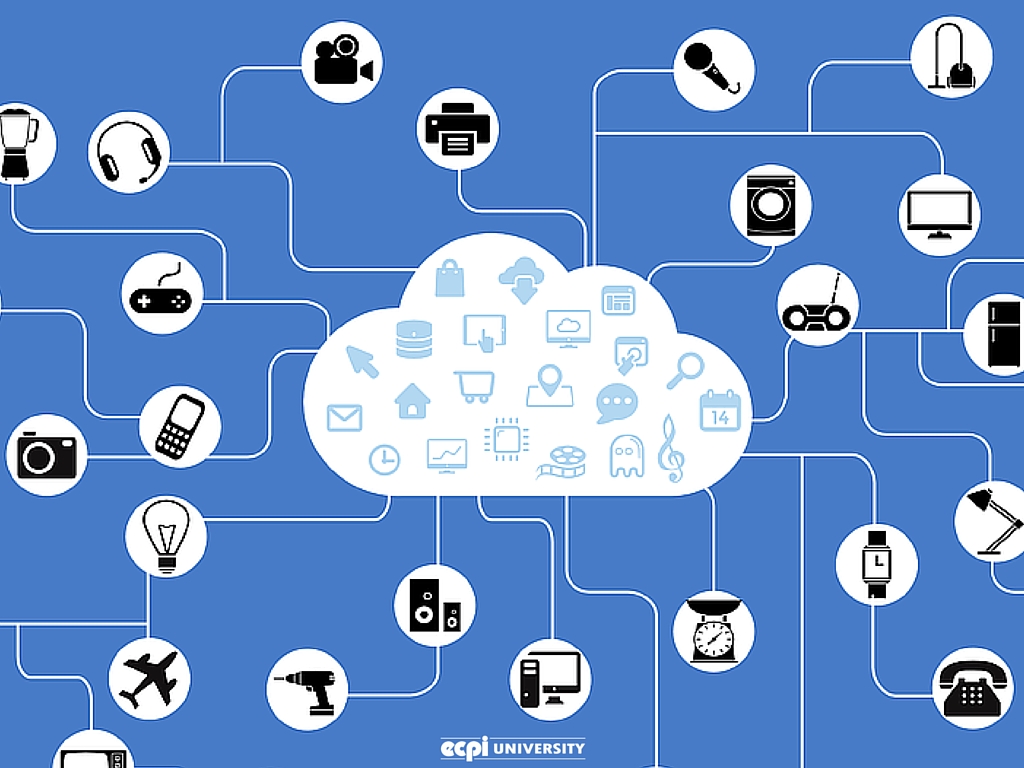
The Internet of Things is coming, and that could mean big changes at the Department of Homeland Security.
One might not normally think of DHS as being interested in consumer-side technology, but the Internet of Things is shaping up to be a massive shift in how people use and relate to online technologies. Once it becomes commonplace for household items to be Internet-enabled—a technology which, on one hand, promises incredible leaps in convenience—could also be the enabler of significant security threats throughout the nation.
The Rise of The Internet of Things
For those unfamiliar with the term, the Internet of Things (IoT) refers to the growing ecosystem of online-capable devices which are not traditional computers, laptops, cell phones, or tablets. This already includes a vast range of household devices, such as security systems, thermostats, refrigerators, televisions, automobiles, and more.
The IoT is widely expected to be one of the fastest-growing areas of technology, ever. According to experts at Business Insider, by 2020 there will be 34 billion devices connected to the Internet, and only 10 billion of those will be traditional computing devices. In other words, the IoT will represent more than two-thirds of all online technology. They also project $6 trillion dollars being spent on the IoT in that timeframe.
These will be used for a variety of automation and convenience purposes, everything from consumers adjusting their home heating system via smartphone to employers checking their security cameras from remote locations. It is little wonder that Homeland Security is concerned about the implications of the IoT and the potential it will bring for online attacks.
The DHS and the IoT: Prepping For Future Threats
Homeland Security's interest in the IoT is twofold. They are looking into both how it can improve their own operations, as well as how they can protect America against those who would seek to undermine it.
According to the Federal Times, the DHS has "revolutionary goals" for implementing IoT solutions in their own operations, such as:
- Wearable sensors built directly into uniforms.
- Hands-free communications gear that require no external radios.
- Embedded cameras in badges or eyewear.
- Greater use of non-invasive screening and monitoring to improve airport efficiency.
- Monitoring the online activities of government workers and contractors, to reduce security breaches.
The IoT offers impressive opportunities to improve our security readiness, while reducing inconvenience to everyday citizens. If properly implemented, it could lead to a revolution in invisible security systems, protecting the people without them even being aware of it.
But that's only if the technology can be made safe from intrusion.
As Network World reports, the DHS also has a long list of potential issues they feel need to be addressed, for IoT technology to be secure and ready for widespread use across America. They've put out a call for those who can find creative and actionable solutions to many of the foreseeable problems from the technology.
These include:
- Limiting the ability of one compromised device to compromise an entire ecosystem. (ie, intruders gaining access to a home security system via a poorly-protected Smart Fridge)
- Balancing convenient autonomous behaviors with restrictions to prevent automation from going rogue.
- Detecting intrusion attempts across an entire smart ecosystem seamlessly.
- Keeping consistent protections in place for smart devices, even though their physical location may change.
- Allowing "sometimes-on" devices to interface with "always-on" systems without creating security holes.
- Being able to guarantee and identify the provenance of devices which may come from a variety of manufacturers.
- Software update systems which can keep devices protected automatically, without becoming a vector for attack.
- Identifying and blocking a vast range of viruses, trojans, sniffers, and other malware which could compromise security.
- Keeping reliable encryption systems in place across entire ecosystems.
For all the benefits which the IoT may bring, there are many concerns that have yet to be addressed. And the Internet of Things is coming, whether we're ready or not. That makes it vital that America's best and brightest start looking to ensure the IoT will work for us, rather than against us.
Enter a New Era with a Career in Homeland Security
Our nation faces threats unlike any that we've ever seen before. Are you ready to step up and defend America against aggressors foreign, domestic, and virtual?
If so, your next step is to visit ECPI University and learn about the Bachelor of Science Degree in Criminal Justice with a concentration in Homeland Security. In as little as 2.5 years, you could be on the front lines of our country's 21st Century defenses. It could be the Best Decision You Ever Make!
Ecpi 2day to get started ona my batchelors degree in criminal justice/homeland security ... Yeeeeeeeeah
— Isaac Avent (@eye_zik32685) December 6, 2011
DISCLAIMER – ECPI University makes no claim, warranty, or guarantee as to actual employability or earning potential to current, past or future students or graduates of any educational program we offer. The ECPI University website is published for informational purposes only. Every effort is made to ensure the accuracy of information contained on the ECPI.edu domain; however, no warranty of accuracy is made. No contractual rights, either expressed or implied, are created by its content.
Gainful Employment Information – Homeland Security - Bachelor’s
For more information about ECPI University or any of our programs click here: http://www.ecpi.edu/ or http://ow.ly/Ca1ya.


